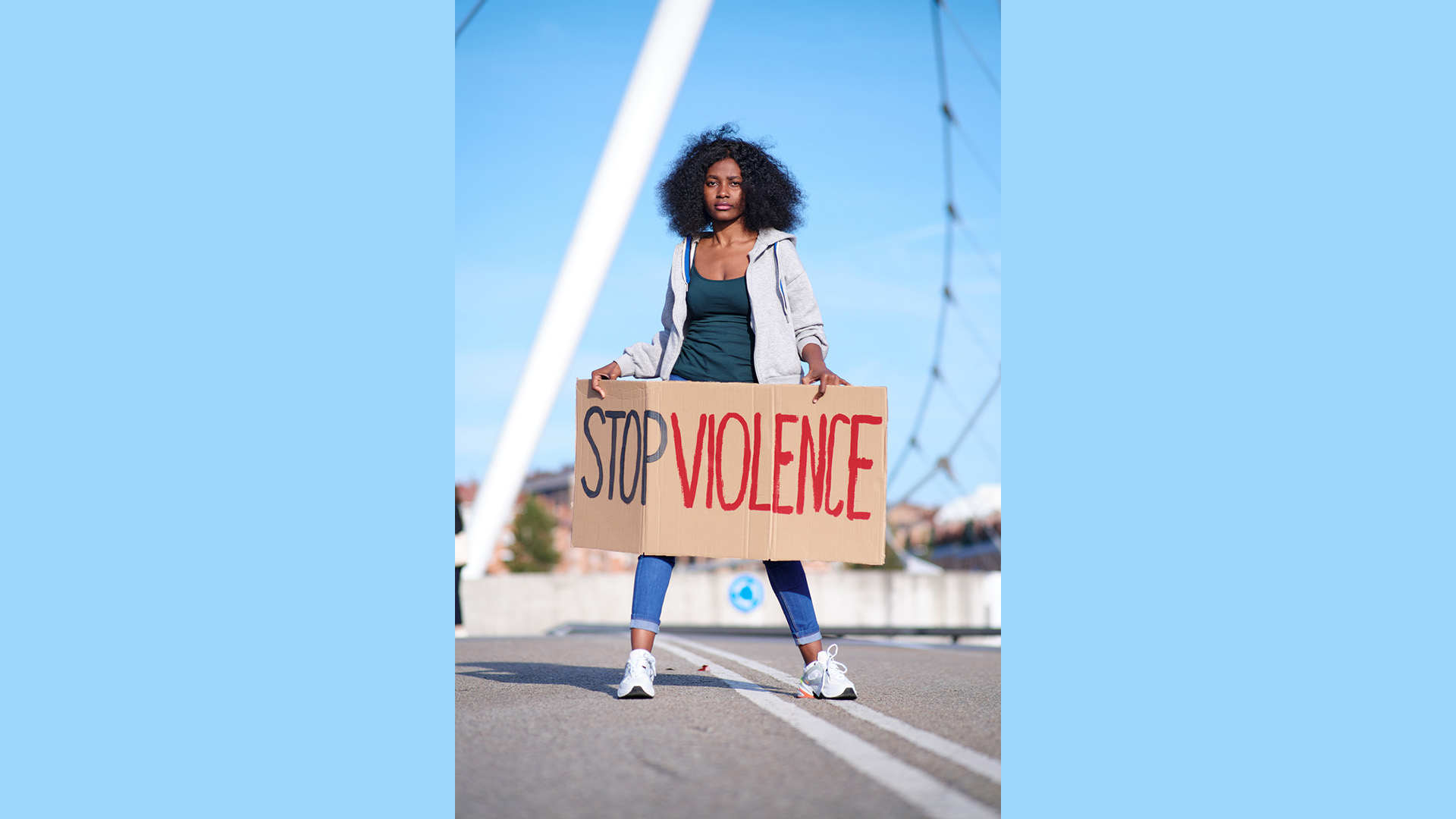Black youth suffer unequally from community violence, which takes a toll on their mental health. When youth experience violence directly, they face even greater mental health challenges, including higher rates of depression, anxiety, and post-traumatic stress disorder (PTSD).
Daily, real-time racism and discrimination in social settings and public places (including microaggressions) can make mental health conditions even harder to regulate. That leaves youth feeling more unsafe, anxious, and stressed.
DR. TYIA WILSON
Dr. Tyia Wilson, Research Assistant Professor in the University of Pittsburgh’s Pediatrics Department, is studying how communities can protect Black youth from violence-related mental health challenges. What she’s finding is that caring, supportive adult relationships play a role in improving young people’s mental health outcomes by giving them a greater sense of stability, direction, and safety.
One of Dr. Wilson’s studies focused on youth ages 13-21 and the key adults in their lives. Participants lived in 20 different Pittsburgh neighborhoods.
Most of the youth identified as Black. Most had been impacted by violence in the past month. About 75% had been harmed by someone else while almost all had witnessed violence. The study’s key adults were made up of mostly parents and grandparents but also included coaches and other family members.
Through detailed interviews, surveys, and analysis, Dr. Wilson and her team identified the key qualities that make up a strong, protective adult/youth relationship.
Dependability
“Many of the youth we interviewed valued the dependability and unwavering support of an adult, which one youth described as ‘just being there,’” says Dr. Wilson. Another youth reported that his adult had ‘…been there [for me] no matter what — just helping me always. If I need anything, I just ask him.’
Adults in the study echoed this quality. “In addition to dependability, they listed ‘reliability’ and ‘availability’ as fundamental to their relationships with their kids,” says Dr. Wilson. “One parent referred to it as always ‘having their child’s back.’”
Nonjudgement
Another protective quality is a parent’s ability to be nonjudgmental. One youth summed it up this way: If I call my mom for a ride from a party where everyone is fighting or getting high, I want her to focus on the call, not punishment or judgement. “When a parent can do that,” says Dr. Wilson, “their child is more likely to trust and rely on them in other difficult moments when they feel unsafe.”
Again, adult participants agreed. “One parent noted how important it is to respond to her child’s feelings in a serious manner,” says Dr. Wilson. “She noted that adults often dismiss their kid’s feelings. Instead, parents should respond thoughtfully and help their child work through what’s happening.”
Friendship
A close, nurturing friendship with an adult is also protective according to research participants. One youth described her mother not only as her parent, but also her best friend. Another described how, when she needs advice, she can tell her grandparent everything.
The feeling was mutual in most cases. “One mom noted she felt her son was her best friend and she was his backbone,” Dr. Wilson adds. “This kind of closeness allows youth to express themselves openly.”
Real-life support
Dr. Wilson’s study also found that adult emotional, informational, and instrumental support can be protective. “Youth participants valued adults who listen and show empathy and compassion,” she states. “They feel close to adults who offer advice and guidance about everything from homework to money management to figuring out educational and job opportunities.”
According to one adult participant, “I think it’s important to be an advocate [for your child]. Like, if you see something wrong going on, [you say] ‘Hey, my friend, you know that that’s not right.’ You gotta speak up.”
The study also revealed that communication difficulties were common between youth and adults. “It’s good to know that both groups struggled to understand each other sometimes,” says Dr. Wilson. “The important thing is to keep trying and not assume your teen isn’t listening to what you say or paying attention to how you act.”
In partnership with community-based, youth-serving organizations, including the Neighborhood Resilience Project, Dr. Wilson has also studied how Black youth affected by violence feel about sharing their behaviors, emotions, and locations with researchers via text through a system called GEMA. GEMA stands for Geographic Ecological Momentary Assessment. “With GEMA, we texted youth participants throughout the day. We collected data about where they were, what they were doing, and how they were feeling,” explains Dr. Wilson.
After the study, participants reported high satisfaction with GEMA. They appreciated feeling safe, thanks to GEMA’s GPS monitoring system. They liked the support services available as part of the research. “They valued the chance to check in with someone about their feelings,” says Dr. Wilson. “They also liked the idea of being citizen scientists and made good suggestions about improving GEMA.”
In the future, Dr. Wilson’s research may expand GEMA to a larger group of youth for a longer period and make it more community oriented. She notes, “Along with supportive adults, GEMA could become another way communities reach out to vulnerable youth and help them build resilience.”
